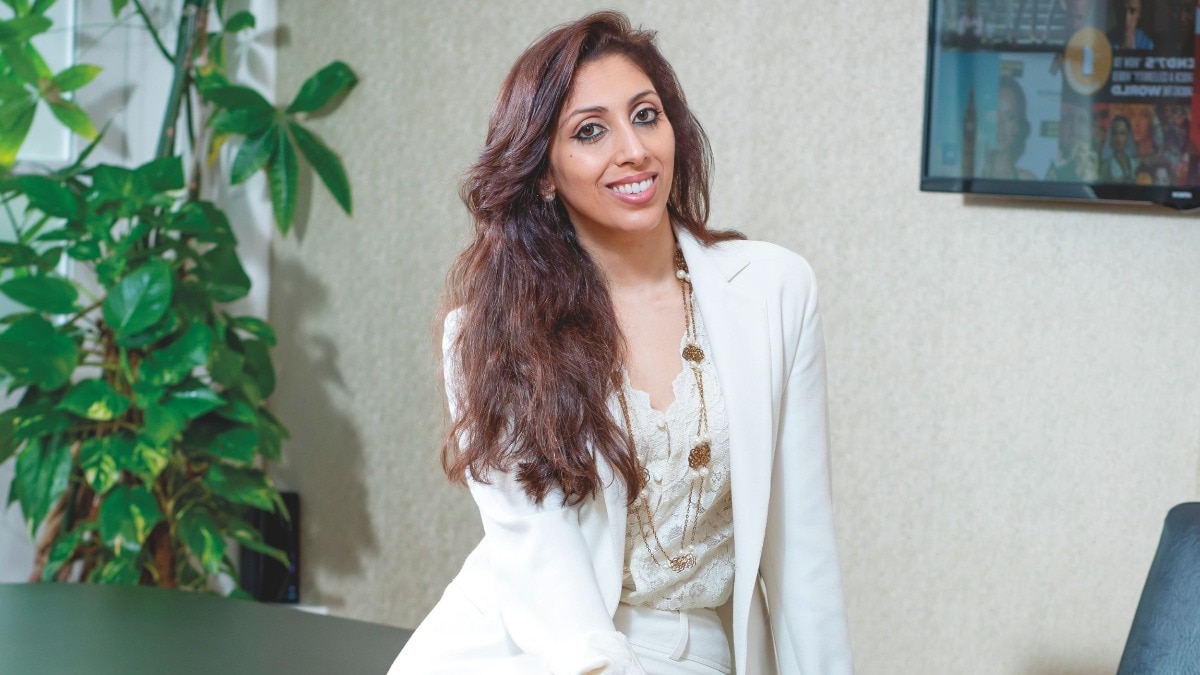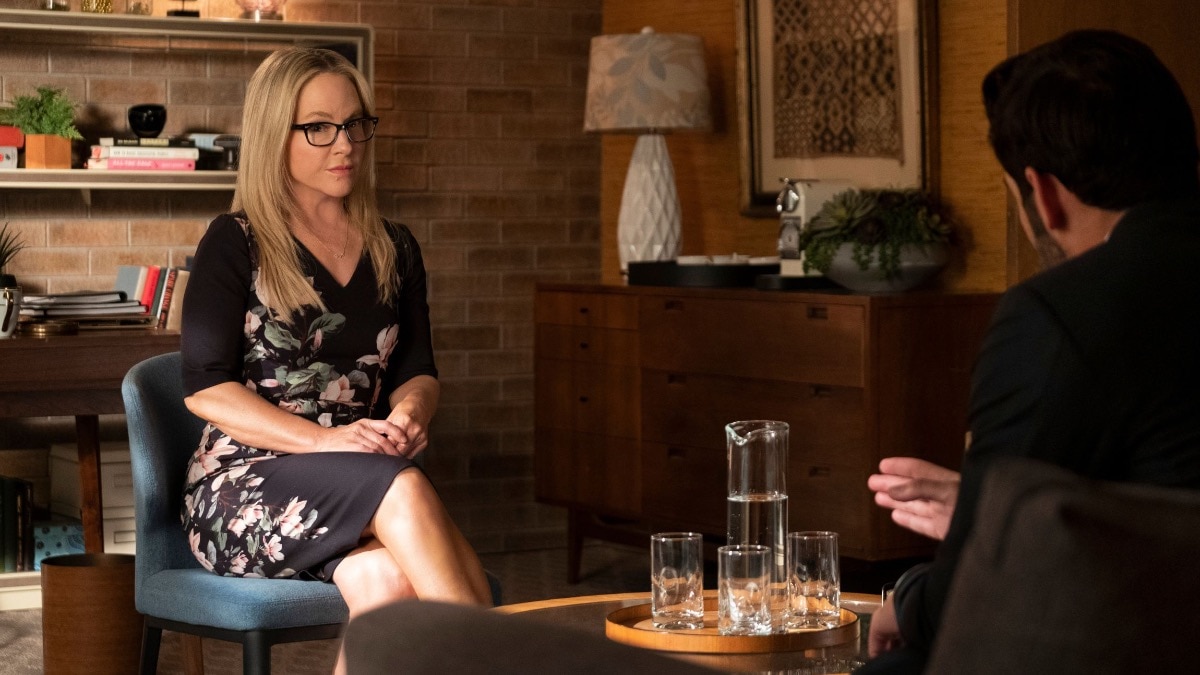
10 things you should know about freezing your eggs
Entrepreneur, author, and mental health advocate, Poppy Jamie shares some invaluable lessons from her egg-freezing journey.


Like many women before me, I found myself single in my early 30s and, for the first time in my life, started to consider my biological clock. It wasn’t ticking that loudly, but there was a niggle in my psyche to have a fertility check-up just to affirm I had many years ahead of me. I had read so many stories of people having babies in their 40s, I wasn’t worried; this was more for peace of mind. Or so I thought.
During a fertility check-up, a blood test will check your AMH (Anti-Müllerian Hormone) levels, which gives an indication of your ovarian reserve—the number of eggs you have left. An ultrasound scan then provides a further snapshot of your fertility by counting the number of follicles you have (follicles are tiny, fluid-filled sacs in the ovaries and each follicle contains an immature egg). In general—though of course, not always—the younger you are, the higher these numbers will be. If you have PCOS (polycystic ovary syndrome), then you might have very high numbers, and that comes with different fertility challenges that a professional can help navigate.

I sat in my first appointment, answering various questions, and the doctor seemed somewhat surprised to hear that I didn’t have a history of painful periods or other symptoms that she listed. Then she said, “The reason I keep asking you about your periods is because I would usually see your fertility numbers in a woman 10 years older than you”.
The shock hit me quickly and then the confusion set in. What does that mean? How has this happened? What do I do now?
The tests revealed that I had a very low AMH number, and limited follicles were present on the scan, so I was diagnosed with premature ovarian reserve decline. With the numbers I had, I wouldn’t be eligible for fertility treatment on the NHS and instead written off as infertile. The news knocked me sideways. I had always dreamt of being a mother. I worked tirelessly in my twenties because I thought that putting in the hours in that decade would allow me more time to spend mothering in the next. But those dreams and plans were on the brink of devastation as my biology had taken a turn.
"The shock hit me quickly and then the confusion set in. What does that mean? What do I do now?"
Before I left, my doctor shared some golden advice: low ovarian reserve did not mean I couldn’t get pregnant or freeze my eggs. The most important factor in both was egg quality. Her words were clear. “Be proactive, focus on optimising for egg quality, prioritise sleep, reduce intense exercise, eat well, increase rest and think about egg freezing sooner rather than later.” I froze my eggs three months later, and I wake up grateful for this technology every day.
Before I share the things I wish I had known about egg freezing before I began, I want to make a few things really clear. Egg freezing is not for everyone; you may not want children, or you may be genetically blessed and have super-high fertility until a very late age, so this process is not needed. It’s expensive, time-consuming, and emotionally and physically draining. But, in my opinion, it is also a fantastic scientific breakthrough, giving people with ovaries greater equality and choice. Gender equality will always be a figment of imagination unless reproductive healthcare, like egg freezing and affordable IVF, becomes accessible to all who want it. Otherwise, the biological clock will continue to dictate women's choices, rather than their aspirations.
Explore your reason for doing it
Egg freezing is challenging. I found it psychologically helpful to pinpoint my reasons for doing it. Establish all the benefits you see in this treatment so that in the hard moments, you can remind yourself why you’re going through with it.
In Marcia Inhorn’s book Motherhood on Ice: The Mating Gap and Why Women Freeze Their Eggs, 150 interviews with different women explore reasons for egg freezing. It is comforting to relate to so many stories as you realise how universal our struggles and worries are.
“Contrary to popular belief, egg freezing is rarely about women postponing fertility for the sake of their careers,” she writes. “Rather, the most educated women are increasingly forced to delay childbearing because they face a mating gap and a lack of eligible, educated, equal partners ready for marriage and parenthood. For these women, egg freezing is a reproductive backstop, a technological attempt to bridge the gap while waiting for the right partner.”
Whatever your reason, whether social or biological, write it down; these motivations will give you strength during those harder moments. This book also helps remove any stigma or shame around this process. I barely told a soul the first time I froze my eggs (I have now done it twice) as I was worried about people judging me and genuinely embarrassed that men would think I was horribly unattractive for not being very fertile. I can safely say that I have let that outdated toxic conditioning go. Egg freezing is empowering, not embarrassing and certainly shouldn’t have any shame attached to it.
Manage expectations
Fertility often doesn’t unfold how you think it will, so I found the most challenging aspect of the journey to be when you expect one thing but experience another. This is much like life in general; our happiness is directly related to the gap between what we hope for and what we get. Even as early as the fertility check, reproductive medicine expert, Dr Shazia Malik encourages her patients to think about how they might react to the different results that could arise before they begin.
For me, the first blow was when I walked into the process, assuming I was fertile, to then discover that I was losing my fertility rapidly. The final blow was during my retrieval, when eight eggs were retrieved, but only five were mature enough to freeze. I wish I’d managed my expectations throughout the entire egg-freezing process. You may end up with more eggs, or you may end up with less—but it is what it is. Protect your mental health by reducing expectations and knowing you can only do your best; a large part of it is out of your control.
Injections do get better
One of the main reasons people are terrified of egg freezing is the thought of injections. Who likes injections? No one. But they do get better, I promise. I hated them with a passion and still managed to get through it.
For my first self-administered injection, I made sure my best friend was with me so that we could read the instructions and figure it out together. The clinic’s nurses had given me a tutorial, but honestly, I'm useless at remembering anything when I am stressed and far better at working it out with some YouTube videos. You soon learn your own tricks to make them more manageable. Often you are asked to inject once, twice or even three times a day, and these were some of the hacks I discovered which I hope are helpful for you:
- Look at the needle closely. You will see that one side is usually sharper than the other. When entering the skin, go in a slightly diagonal direction, just like the sloping needle shape, rather than straight in, to reduce the sting. Sometimes this meant I wouldn’t feel a thing.
- Use breathwork to distract. As you inhale, prepare the needle, and as you exhale slowly, push the needle gently in…the body is more relaxed on the exhale, and your brain has other things to think about.
- Just like nurses often say, “Ok, there’s going to be a sharp scratch”, prepare your mind for the feeling of a needle. I also say this to myself, and it helps. So, I inhale, prepare the needle, say out loud, “Sharp scratch”, and then exhale and push the needle. My mind is then prepared for what to expect at every step.
- Celebrate yourself after each injection. Once I’d injected, I would do an air punch, scream a “YESSS”, or do a little dance to praise myself for completing. Honestly, this is the best brain hack for anything you don’t want to do. Train yourself like a puppy or a child with lots of positive reinforcement.
Hormones can get a bit wild
We’re all affected by our hormones in different ways. I found the general process of egg freezing okay and continued my usual work schedule, routine and commitments until the last few days of the injections. I struggled more with the hormone drop after the freezing finished. Other women have said they found the stimulation phase challenging but felt fine afterwards. Here's a breakdown of the hormonal rollercoaster you take a ride on—and remember, everyone reacts differently:
- Your journey starts with injections of FSH (follicle-stimulating hormone) to stimulate your ovaries and encourage multiple follicles (containing immature eggs) to develop and mature. During this phase, your oestrogen begins to rise as your eggs grow.
- You are then given another medication that suppresses LH (luteinizing hormone) production. This prevents premature ovulation, as you want to keep all the eggs safe and growing until you are ready for retrieval.
- Once your doctor has monitored your follicle growth carefully, you will be given a trigger shot 36 hours before your retrieval that finalises egg maturation.
- After your egg retrieval, there might be temporary fluctuations in hormone levels as your body adjusts to the absence of maturing follicles. You may experience symptoms like those that come with PMS, such as mood swings, bloating and breast tenderness.
- Over a few days or weeks, your hormone levels will return to their pre-stimulation baseline. Your natural menstrual cycle will resume as usual.
We are all unique; you might sail through the entire thing, or you might feel tired and a bit irritable. Avoid assuming that your experience will be like a friend’s. One thing is for sure, you really get to know your hormones in a new way. I began to realise that perhaps a lot of what I had previously assumed was a mental-health struggle, might have just been my hormones out of balance.
Egg freezing can last longer (or be quicker) than you think
There is no ‘typical’ length, as the process depends on many factors, including the type of medication you are on and how quickly your ovaries are reacting. A 2021 study found that the average duration for egg freezing was 10.7 days and noted that women with higher follicle counts needed fewer days stimulated compared to those with lower counts. As I have a low ovarian reserve, I was stimulated for 16 days but I’ve had friends who had their egg retrieval after seven days.
My advice would be to plan for two weeks of stimulating and celebrate if you finish earlier—but, if you’re like me and it drags on, don't be disheartened. Just try to avoid comparisons.
Prepare your body before you freeze
I wish someone had dramatically emphasised this point before I started my cycle. Doctors mentioned that I should prepare by taking supplements, like folic acid and vitamin D, but having gone through the process twice, I feel far more attention should be put on the preparation. I truly believe that you can change the experience and outcome by how much you prepare beforehand. I changed my diet, my lifestyle and the way I exercised, and took supplementation very seriously. In doing so, managed to increase the amount of eggs I was able to freeze in my second cycle (10 months later). Here are some things I did:
- Stopped intensive cardio—I said goodbye to running and spinning and said hello to yoga and Pilates (research has shown that over-exercise can negatively affect fertility).
- Prioritised sleep—I tried to get eight-plus hours as much as I could (sleep supports better hormonal balance).
- Tested my vitamin D levels and took a high-quality vitamin D supplement (research shows it supports hormonal balance and ovulation).
- Found a really good quality pre-natal supplement that focuses on optimising egg quality and hormone health. Artah's Enhanced Fertility is a comprehensive blend of the vitamins, minerals and phytonutrients proven to improve egg quality, reduce inflammation and improve blood sugar, both of which are important for fertility. I also love that it has a good dose of CoQ10, which is more important for women in their 30s (studies suggest that CoQ10 may decrease the risk of chromosomal abnormalities in eggs).
- Tested my thyroid and was prescribed hormone replacement (Levothyroxine) after results revealed I had Hypothyroidism (slow thyroid). Thyroid hormones play a role in egg development and maturation. Low levels can affect egg quality and hinder ovulation.
- Supplemented with 300mg of magnesium to help me sleep better (I recommend Cymbiotika's Magnesium L-Threonate).
Egg quality is more important than egg quantity
Every person will retrieve different numbers based on many factors, including age, lifestyle, genetics and diet. Refrain from getting hung up on numbers; egg quality is more important than egg quantity. I’ve heard of some women retrieving more than 30 eggs, and none of them were viable for fertilisation, and I’ve heard of women retrieving one egg that survived the entire process and became a live birth. Having said this, clinics hope to retrieve 10-to-15 eggs a cycle and often will encourage you to do multiple cycles to help you get to these numbers in the hope this will create the outcome you want. I have now completed two cycles as my body was unable to create many eggs given my low ovarian reserve.
It might cost more than anticipated—and you may not even use the eggs
Egg freezing costs in the UK vary at different clinics, but the average for one cycle is £5,000-£8,000 (which includes freezing, medication, storage and thawing). In India the entire procedure can cost up to three lakhs.
Egg survival and success rates also vary but are thought to be as follows:
- Survival after freezing/thawing – 90-to 97 per cent of eggs survive.
- Fertilisation – 75 per cent of frozen eggs get fertilised.
- Implantation in uterus – 25 per cent chance of embryo attaching.
- Live birth – 80 per cent chance with 10-to-15 eggs frozen before age 35 (which drops with age).
In terms of how many frozen eggs are used, global statistics show that 40-50 per cent of women who freeze their eggs eventually use them in IVF cycles. This number is even higher for some clinics (exceeding 60 per cent), and lower for others (below 30 per cent).
Clearly, there are no promises with egg freezing. Science is constantly improving, and people are increasingly experiencing success, but there are no certain outcomes.
The success rate stats above are all supported by the American Society for Reproductive Medicine, the New England Journal of Medicine 2022, or the Journal of Assisted Reproduction and Genetics 2023.

Choose your clinic wisely
I found my clinic via friend recommendations. In general, when you’re looking for your clinic, prioritise experience and reputation, read their reviews, check to see what experience the doctors have, and ask for their most up-to-date outcomes for egg freezing and implantation using frozen eggs.
Be aware of hidden costs like lab fees, blood tests, additional medication or anaesthesia charges.
Consider location, too. Choose a clinic that is easy to get to; most likely, you will be going four-to-five times during your stimulation, so if the clinic is in a convenient location, this removes any travel stress.
Set aside time to recover post-egg retrieval
Egg freezing is an up-and-down process, and each cycle is different. After my first cycle, I was working and exercising by the next day and felt no side effects post-retrieval. However, after my second cycle, I felt tired for weeks. My emotions were also more volatile, and I felt extra sensitive and irritable. I didn’t stop working throughout any of it, but I would recommend taking a few days off post-egg freezing if that is available to you. I have no idea why the second cycle impacted me more, but my body just needed additional time to get back to equilibrium. It is challenging not to want to rush the recovery, as you are no longer injecting and feel relief for having completed the process. But try to stick to resting as much as possible.
In summary, I wish the NHS actively provided fertility check-ups from the age of 25. Even if you do not want children, fertility is a vital health bio-marker to track. Had I not gone and tested, I could have accelerated the start of my menopause, and there are many negative health consequences linked to premature menopause.
There is help at hand. I recommend Daye’s At Home Vaginal Microbiome screening test—a simple kit that checks the immune cells in your reproductive tract. If you are unbalanced, this can lead to vaginal infections, STIs and reproductive difficulties. The test is easy and helps you to understand your vaginal microbiome composition to help you better manage your gynaecological health. Furthermore, Hertility provides an at-home test that is well priced and gives you access to key data like AMH and other hormone levels that indicate fertility levels.
I am still investigating the different factors that could be responsible for my low ovarian reserve and the decline we are seeing in fertility levels globally. When I have furthered my research, I’d love to share my findings; all I want is for women to have a longer biological clock and more time to make choices to maximise happiness and health.
This piece originally appeared in Harper's Bazaar UK.










